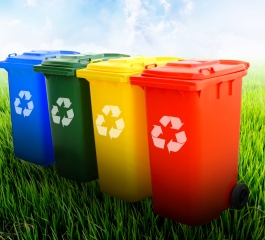What is sustainability?
Sustainability ensures the ability to meet the needs of the present generation without compromising those of future generations to meet their own needs.
In addition, its main objective is to balance economic development, environmental preservation and social justice, aiming to guarantee a viable future for humanity and especially for the planet.
This occurs through the adoption of responsible practices in various sectors, such as the economy, environment and society.
In general, its importance lies in conserving natural resources, improving people’s quality of life and preserving the environment for future generations.
Tripod of sustainability
Sustainability encompasses three fundamental pillars:
1 – Environmental: Concerns the protection and conservation of the environment, in order to preserve natural resources, ecosystems, biodiversity and minimize pollution and negative impacts caused by human activities.
2 – Social: Refers to promoting the well-being of communities, ensuring access to basic resources such as health, education, housing, food and equal opportunities, in addition to respecting human and cultural rights.
3 – Economic: Encompasses economic development in a responsible and equitable manner, aiming at sustainable growth that does not compromise natural resources and promotes social inclusion.
The quest for sustainability involves individual, business and government actions and decisions that take into account the long-term impacts of human activities on the environment and society as a whole.
In this way, it is expected to ensure a balance between current and future needs, enabling a healthier and more prosperous future for all.
Main examples of sustainability
There are several sustainable actions, from individual to global ones that, when adopted and put into practice, help in good sustainable development. Check out what they are below:
— Individual actions:
Here are some individual actions to promote sustainability:
Reduction of energy consumption: turn off electronic devices when not in use, use more efficient light bulbs and avoid unnecessary use of air conditioning and heaters.
Water saving: To promote sustainable water use, it is important to turn off the faucet while brushing your teeth or soaping your hands, fixing leaks, and choosing water-saving showerheads and faucets.< /p>
Recycling and conscious use of natural resources:separate and send recyclable waste to selective collection (paper, glass, plastic and metal) and reduce food waste, using reusable bags and preferring products with sustainable packaging .
— Global actions:
There are several global actions that can be taken to promote sustainability. Some of them include:
Investment in clean energy:Encourage the use of clean and renewable energy, such as solar, wind, hydroelectric and geothermal, to reduce dependence on fossil fuels and their emissions.
Reducing deforestation and protecting forests:Preserving and restoring forest areas is essential to absorb carbon, preserve biodiversity and protect water resources.
Implementation of environmental policies:Governments can encourage sustainable practices through public policies, such as offering tax incentives to companies with environmentally responsible practices.
— Community action:
Finally, it is extremely important to mention that there are several community actions that can be carried out to promote sustainability. Here are some of them:
Education and awareness:promote awareness campaigns on sustainable practices, such as recycling, saving water, energy and reducing the use of plastic.
Sustainable transport:Promote sustainable means of transport, such as bicycles, carpooling and public transport.
Support for sustainable local initiatives: Encourage local commerce with sustainable practices and respect for the environment.
Conclusion
In summary, sustainability is essential to ensure a viable future for future generations, balancing economic development, environmental preservation and social justice.
The environmental, social and economic pillars guide individual, business and government actions, which, when carried out, promote sustainable development.
Adopting sustainable practices, such as reducing energy consumption, investing in clean energy and protecting forests, is crucial to ensuring sustainability for the planet.
In addition, awareness and education are key to promoting it.
In this way, by incorporating sustainability into our daily lives and decision-making, we will be contributing to a healthier, more prosperous and balanced future for all humanity and our precious planet.


